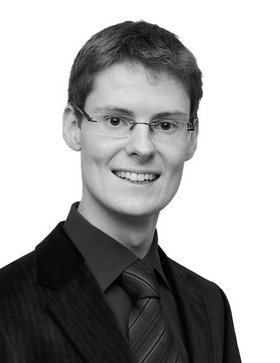Graduate Moritz Schraut

You are a specialist for application development in the field of databases. What does a typical working day look like for you?
"There's actually no such thing as a typical working day. The tasks are very different - depending on what is currently required. Of course, this includes translating business requirements into database structures and application code. This includes the modification of existing systems, which must first be familiarized with, as well as the development of new systems "on the greenfield site". Apart from programming, however, there are many other tasks which, depending on the situation, shape a working day to a different degree. At the beginning of a project, the collection of requirements is often in the foreground. Meetings with the respective department are used to try to enter requirements for the new system, which are written down in requirement specifications. However, this does not mean that the requirements survey is complete, as new technical questions arise time and again in the course of development. In addition, technical questions must be clarified in the team. Towards the end of a project, the focus is on preparations for the rollout:
Integration tests, training and information of employees, support and clarification of questions/errors/misunderstandings. In addition, there are some external service providers. This results in a varied mix of tasks, each with a different weighting of the task fields".
What skills from your studies will help you in this job today?
"On the one hand, the concrete skills in programming, software design or general business and IT understanding that I acquired during my studies are certainly helpful. On the other hand, it is especially general competences such as the ability to work independently on new topics, accuracy in the formulation of scientific texts or the ability to critically question things that help me in my current job".
You earned your Bachelor's degree at another university. What motivated you to do your Master in Business Information Systems at the University of Duisburg-Essen?
"The upstream question is why I didn't want to do my Master's degree at the same university as I already did my Bachelor's degree. Each university "ticks" a little differently and sets different priorities. Although I was very satisfied with my previous university, I decided to change - the right decision afterwards. Just as with the job, a change to a certain "company blindness" helps to evaluate things differently, to realize that many things that we always took for granted up to now are anything but self-evident.
The University of Duisburg-Essen appealed to me for several reasons: the bilingual Master's degree prepares me for an international job market and the relationship between IT and business is balanced, so that many events fall exactly into the interface that distinguishes Business Information Systems. Furthermore, the city of Essen offers a dynamic environment that is characterised by diversity and diversity".
You have chosen Korea for your semester abroad. What did you take from this time for yourself and your profession?
"The time in Korea was very formative. The greatest benefit is certainly a personal one: the exchange with other cultures, the questioning of values that we take for granted, asserting ourselves in a completely different environment, making friendships across national borders and honest encounters that require and promote compromises, adaptability and a willingness to learn.
Professionally, apart from the regular events at the Korean University, I was able to improve my language skills by the necessity to communicate in English or Korean. In addition, the country is already much more technologically advanced than Germany, so that some developments for Germany can already be anticipated".
